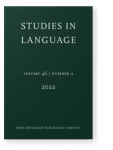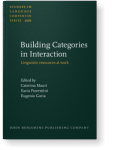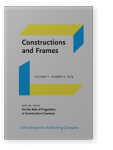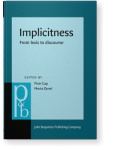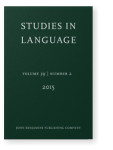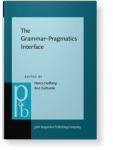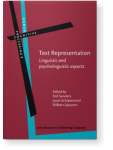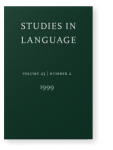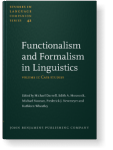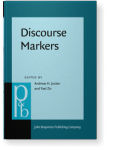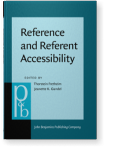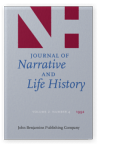Mira Ariel
List of John Benjamins publications for which Mira Ariel plays a role.
2022 The missing link between truth and intensification Studies in Language 46:2, pp. 285–322 | Article
Truth markers commonly evolve into intensifiers (Heine & Kuteva 2002), but we here argue that this shift is only indirect, and a counter-loosening phase necessarily mediates between truth marking and intensification. Counter-looseners instruct the addressee to avoid (or rather, constrain) the… read more
2021 Chapter 16. Why it’s hard to construct ad hoc number concepts Building Categories in Interaction: Linguistic resources at work, Mauri, Caterina, Ilaria Fiorentini and Eugenio Goria (eds.), pp. 439–462 | Chapter
Lexical meanings are routinely adjusted in order to evoke ad hoc concepts. But number words pose a unique challenge. Carston (2002) discusses two relevant interpretative processes in this connection. Broadening (as in metaphorical uses) introduces an ad hoc concept by incorporating… read more
2019 Or constructions: Code, inference and cue too On the Role of Pragmatics in Construction Grammar, Finkbeiner, Rita (ed.), pp. 193–219 | Article
Utterance interpretation involves semantically specified codes and context-based pragmatic inferences, which complement each other. The goal of this paper is to demonstrate the very complex relation between a subset of codes, Goldbergian constructions, specifically ones centering around… read more
2017 Chapter 2. What’s a reading? Implicitness: From lexis to discourse, Cap, Piotr and Marta Dynel (eds.), pp. 15–36 | Chapter
Linguists sometimes assume that the readings associated with linguistic utterance, both explicit and implicit, are self-evident. I here problematize the concept of a reading associated with linguistic expressions, and restrict it to interpretations systematically intended by the speaker using the… read more
2015 Pronominal datives: The royal road to argument status Studies in Language 39:2, pp. 257–321 | Article
Based on a large corpus of dative constructions in Hebrew, we propose that dative-marked pronominals manifest a facilitated path from adjunct to argument. Since datives tend to be pronominal, adding them onto existing argument structures avoids a clash with the Preferred Argument Structure (PAS)… read more
2007 A grammar in every register? The case of definite descriptions The Grammar–Pragmatics Interface: Essays in honor of Jeanette K. Gundel, Hedberg, Nancy and Ron Zacharski (eds.), pp. 265–292 | Article
2001 Accessibility theory: An overview Text Representation: Linguistic and psycholinguistic aspects, Sanders, Ted J.M., Joost Schilperoord and Wilbert Spooren (eds.), pp. 29 ff. | Article
1999 Cognitive Universals and Linguistic Conventions: The Case of Resumptive Pronouns Studies in Language 23:2, pp. 217–269 | Article
Generativist pragmatists and discourse grammarians both subscribe to a functional view of language, but they do not agree on the nature of pragmatic principles. Prince (1988a,b) has argued that form-function correlations are arbitrary and language specific. Discourse grammarians have argued that… read more
1999 Mapping So-called “Pragmatic” Phenomena According to a “Linguistic-Extralinguistic” Distinction: The case of propositions marked “accessible” Functionalism and Formalism in Linguistics: Volume II: Case studies, Darnell, Michael, Edith A. Moravcsik, Michael Noonan, Frederick J. Newmeyer and Kathleen Wheatley (eds.), pp. 11 ff. | Article
1998 Discourse Markers and Form-function Correlations Discourse Markers: Descriptions and theory, Jucker, Andreas H. and Yael Ziv (eds.), pp. 223 ff. | Article
1996 Referring Expressions and the +/- Coreference Distinction Reference and Referent Accessibility, Fretheim, Thorstein and Jeanette K. Gundel (eds.), pp. 13 ff. | Article
1992 The Role of Women in Linguistic and Narrative Change: A Study of the Hebrew Pre-State Literature Journal of Narrative and Life History 2:4, pp. 309–332 | Article
Abstract This article investigates gender stereotyping in the Hebrew literature in Palestine during the 1930s in order to find out the extent to which a new ideology effects linguistic and narrative changes. On the assumption that the foundation of the new society was motivated by an egalitarian… read more
